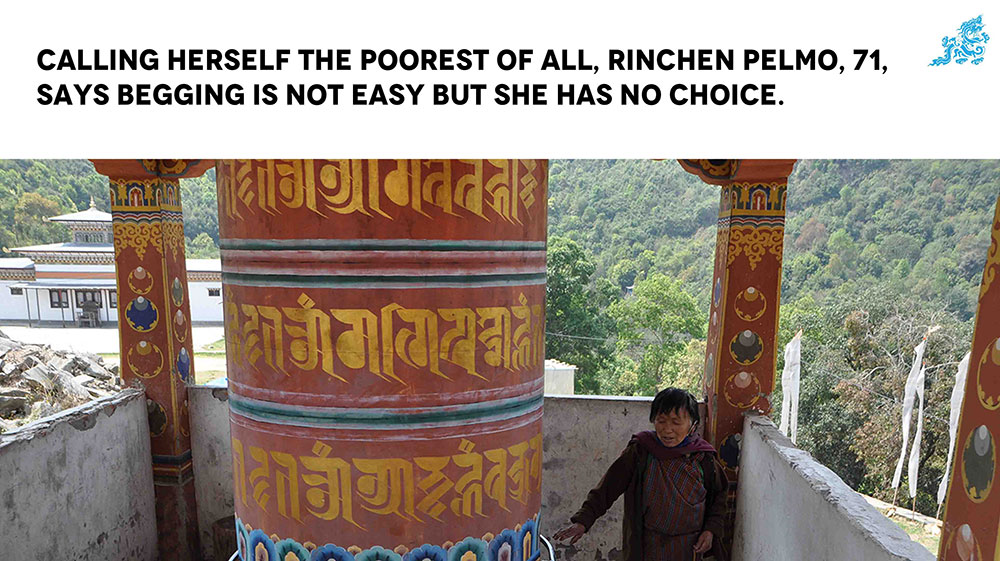It’s getting more difficult by the day but Rinchen Pelmo doesn’t want to go back to her native home
Walking through treacherous trails, dense forest and deep valleys, Rinchen Pelmo, 71, left her village in remote Kheng Gongdue in Mongar two decades ago to lead a spiritual life in Kadam Goenpa.
She decided to live a solitary life reciting prayers, as her stepchildren did not treat her well after her husband’s death.
At the goenpa, she settled in a small makeshift hut a tshampa (hermit) had constructed for meditation. For daily sustenance, she worked on other’s farms as a day labourer. Sometimes, she would have to beg for alms.
“I used to go to Phosorong village to work,” she said. She recalls that her wage was Nu 50 a day then, which increased to Nu 80, Nu 100 and then Nu 200.
But now Rinchen Pelmo is old and cannot work anymore like she could when she was young. She doesn’t have anyone to provide her with the essentials.
“Forget working in fields, I am even struggling to collect firewood,” she said.
She cooks on a traditional mud oven in her small kitchen attached to the hut. In the kitchen, there are only a few utensils, jerrycans, rags, and grimy bedding.
Rinchen Pelmo said she received rations and medicines as royal kidu during the lockdowns. “It helped me immensely.”
She has now been surviving on food the tshampas of the goenpa share with her. They even have helped her repair her hut, as the tarpaulin sheets fell apart some years ago. The tshampas gave her some CGI sheets for roofing. Electricity and water are being shared by her closest neighbour who is the Kudrung of the goenpa.
“I am grateful to the tshampas for repairing my hut. I don’t have to worry about shelter now,” Rinchen said. “I worry about food.”
Last week, she ran out of rice and she had to asked a relative, who is a monk in one of the religious institutions in the dzongkhag, for help. The monk sent her a bag of 25 kg rice. She has rice enough for about two months but what after that?
A tshampa said they helped her whenever they could. “I wish there are people to help her,” a tsampa said.
Rinchen Pelmo has no intention to return to her village.
She said she only has a younger sister, who is dumb, and her children who are not educated. “I can’t ask anything from them as they are struggling too. I don’t want to be a burden to them.”
Calling herself the poorest of all, she says begging is not easy, having to do so every day, but she has no choice.
Rinchen Pelmo cannot read scriptures. So wakes up early, at around 3am to chant mani and circumambulate the temple, stupa and manidungkhor at the goenpa.
By Tshering Namgyal | Mongar


